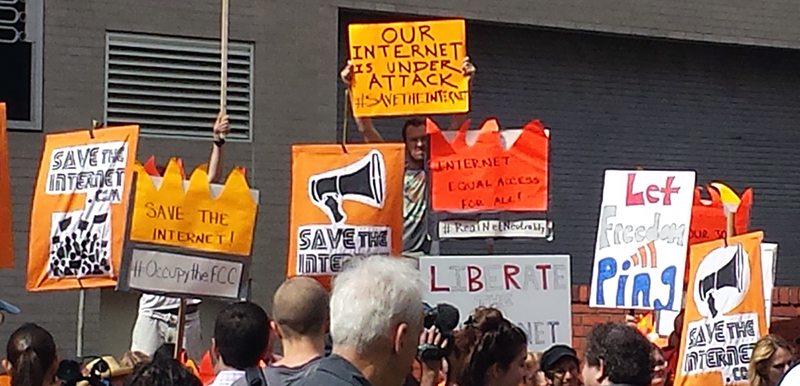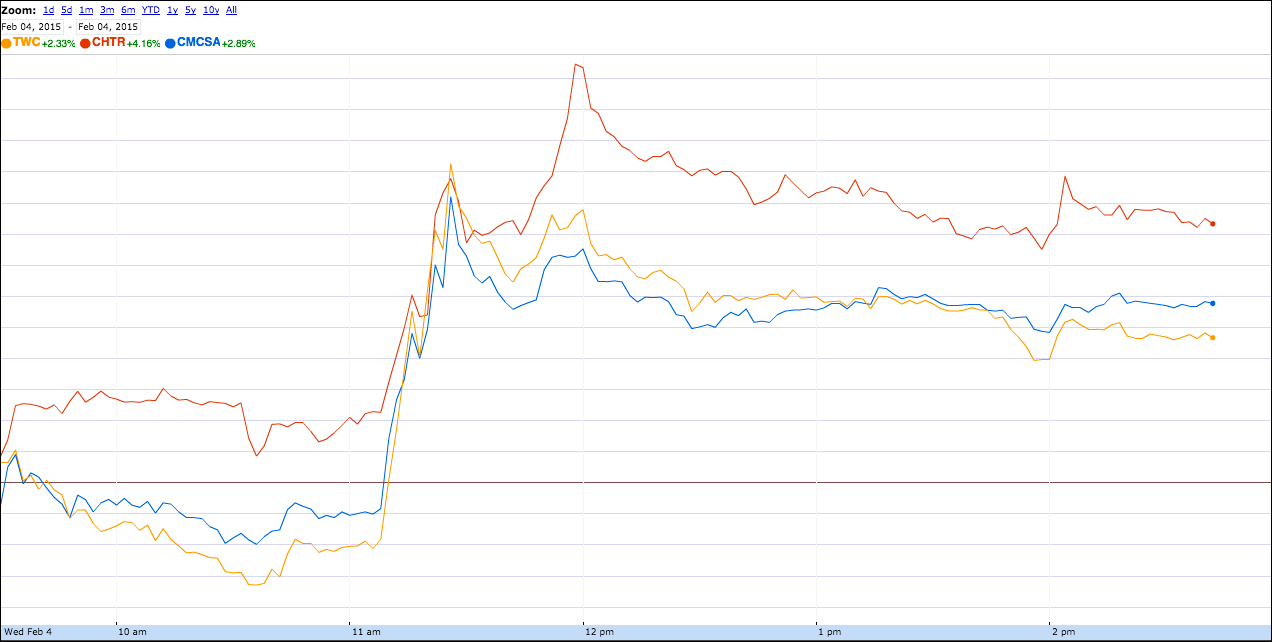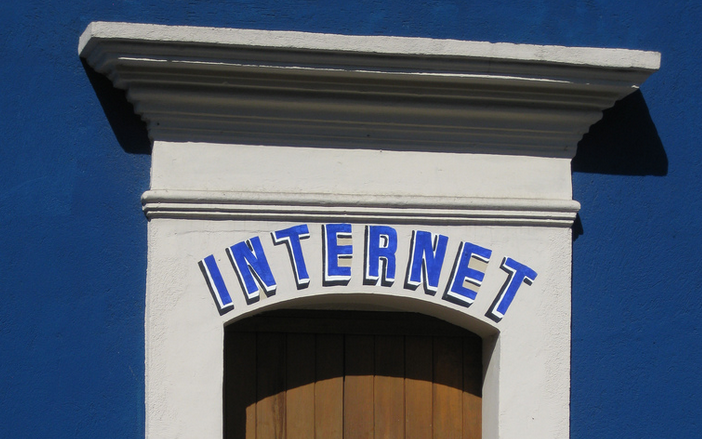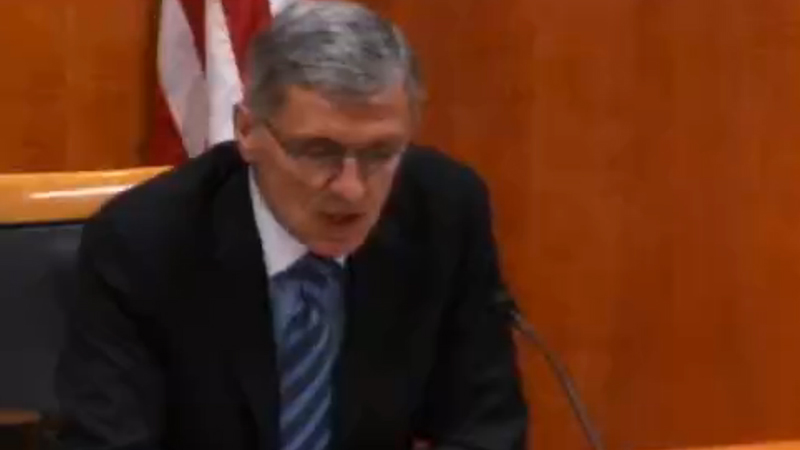On Thursday morning, the Federal Communications Commission will sit down to discuss and vote on two big issues — net neutrality and municipal broadband — that the cable and telecom industries have campaigned heavily to defeat and obscure. Because of these industry-backed efforts and the legalese involved, many consumers are having difficulty separating myth from reality. In an effort to cut through that haze, we’ve attempted to answer the most pressing questions about these two topics before tomorrow’s vote. [More]
fcc

These 2 Charts From Comcast Show Why Net Neutrality Is Vital
Comcast released its quarterly earnings report and the timing couldn’t be better, with the FCC set to vote on Chairman Tom Wheeler’s net neutrality proposal later this week. [More]

Twitter Decides It Loves Net Neutrality, Endorses Proposed FCC Plan
With the FCC set at long last to vote on strong net neutrality protections later this week, everyone is getting their last digs in. While many tech companies have previously spoken out on the issue, both for and against, the big social networks have been slow to plant their flags. That changed today, when Twitter came out swinging, cheering on the FCC’s plan. [More]

Judges Question FCC’s Need To Share What Comcast & DirecTV Pay To Broadcasters
Those following the merger of Comcast with Time Warner Cable and AT&T’s acquisition of DirecTV may remember that the FCC had hoped to make some of the cable companies’ confidential contract information available to parties with a direct interest in these deals. In November, a federal appeals court preliminarily sided with the broadcasters and temporarily blocked the FCC from sharing this info, and this morning the court heard arguments from both sides on whether or not these contracts should be kept under lock and key for good. [More]

60,000 Consumers Call On FCC To Not Allow Robocalls To Cellphones
Earlier this year, we told you how the American Bankers Association was seeking exemptions from the FCC that would allow banks to get around a law that forbids businesses from robocalling cellphones without prior approval. Today, 60,000 consumers are telling the FCC to just say now to the banks’ request. [More]
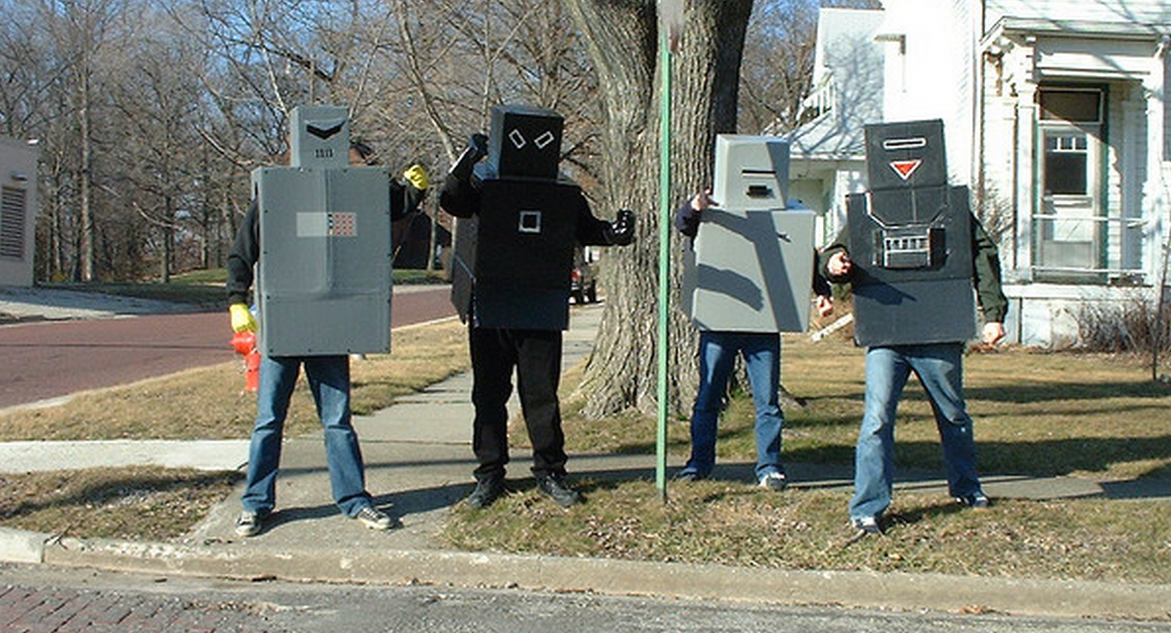
Demand That Phone Companies Give Consumers Free Tools To Block Robocalls
While federal regulations and the Do Not Call list have significantly cut down on some auto-dialed, prerecorded messages, the problem of illegal robocalls still persists, mostly because scammers don’t care if they break the law. There are various technologies that phone companies could use to preempt even more of these calls but most consumers don’t have access to them. [More]
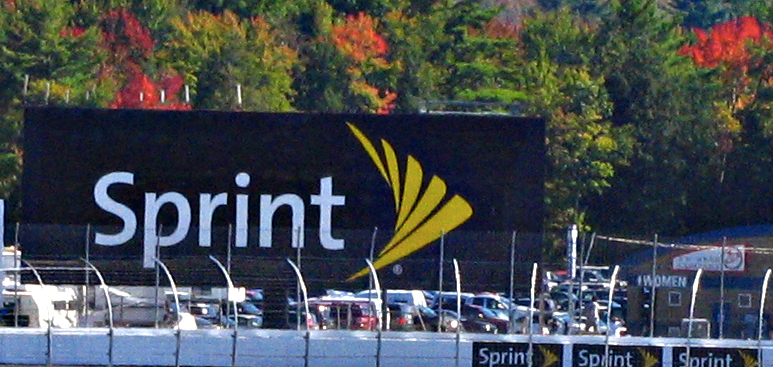
Sprint Says Net Neutrality Won’t Stop Verizon, AT&T From Investing
Mouthpieces for the wireless industry would have you believe that the FCC’s pending net neutrality rules — which would reclassify both terrestrial and wireless broadband as a utility — will cripple investment and plunge us into an era where we carry around mammoth brick cellphones like Zack Morris. So why is Sprint telling everyone a completely different story? [More]
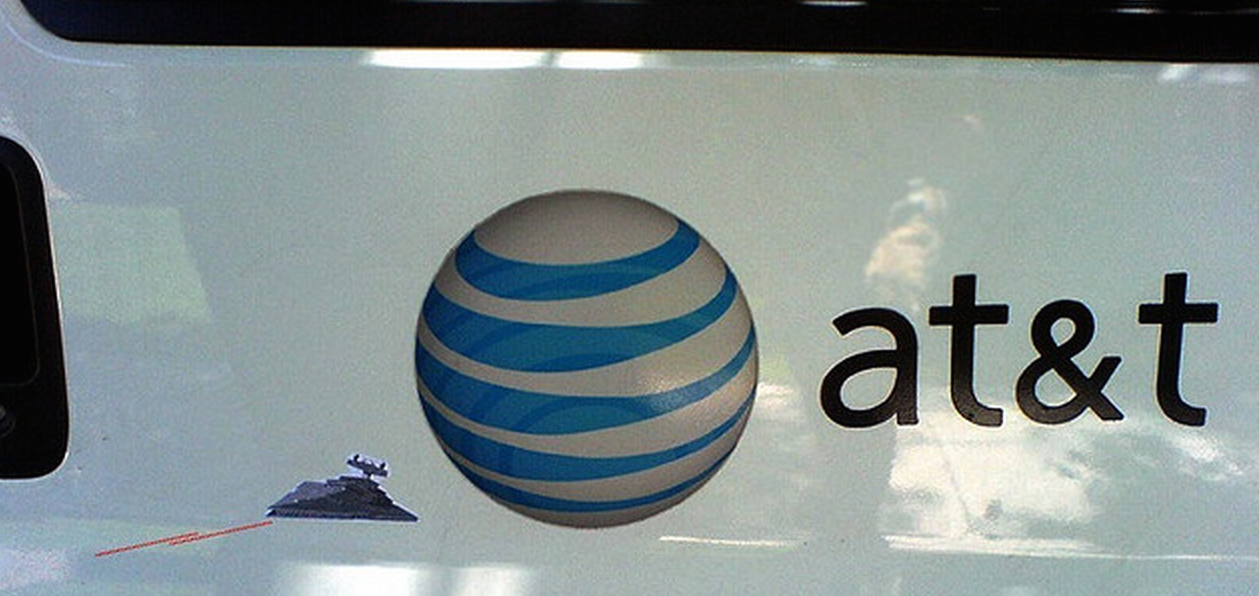
FCC Not Scared Of AT&T’s Plan To Sue Over New Neutrality Rules
Earlier this week, FCC Chair Tom Wheeler confirmed his intention to ask his fellow commissioners to reclassify broadband as a telecommunications service, which would give the FCC more authority to regulate it and prohibit anti-consumer practices like throttling and blocking of data. AT&T is already gearing up for a suit to stop this change, but the FCC is apparently not terribly worried. [More]

Wireless & Cable Industries Fight Net Neutrality With Laughably Misleading Op-Eds & Video
Yesterday, FCC Chair Tom Wheeler confirmed that he intends to have the Commission reclassify broadband as the vital piece of telecommunications infrastructure that it is, which has resulted in immediate backlash from the wireless and cable industry and the handful of astroturfed “advocacy” organizations they support. [More]
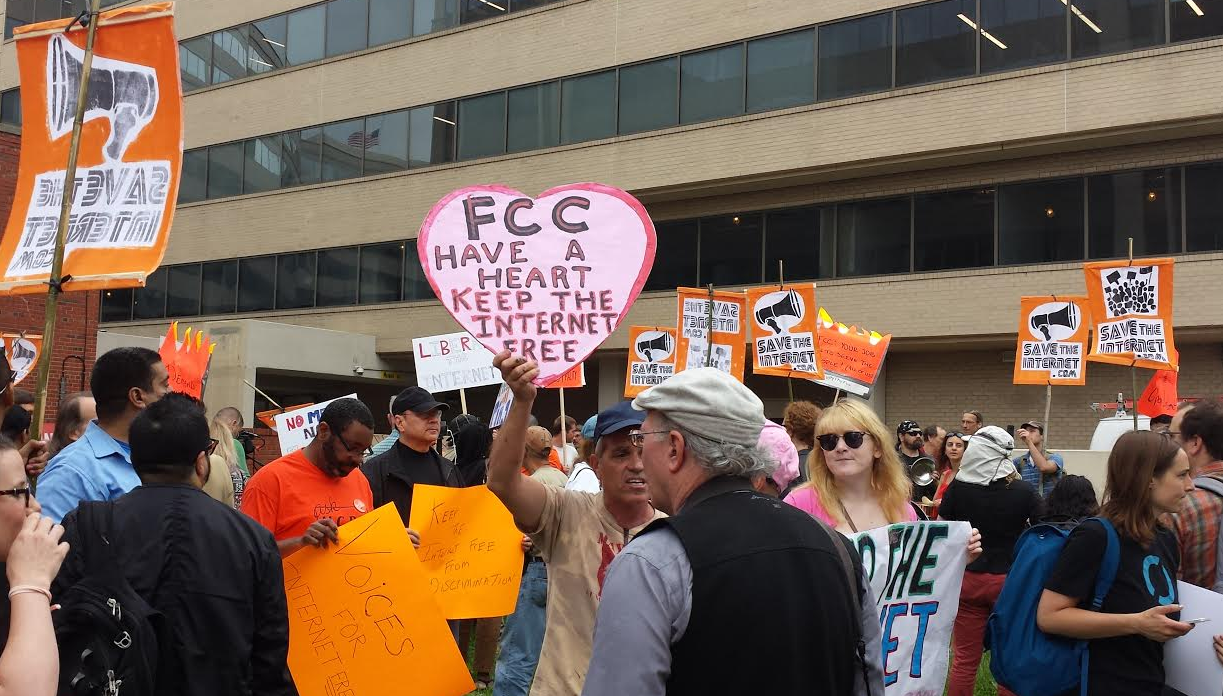
FCC Chair Confirms Title II Approach To Net Neutrality; AT&T Already Warming Up For Lawsuit
In an op-ed today, FCC chairman Tom Wheeler confirmed what sources in the know have recently been saying: to preserve net neutrality, the FCC is indeed going to seek to regulate ISPs as Title II common carriers. [More]
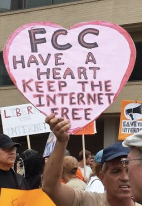
Report: FCC Chair To Propose Actual Net Neutrality, Reclassification Of Broadband Services
It’s been a long strange year for the internet, after a court threw out the net neutrality rule in January, 2014. But after comments, protests, legal threats, and a whole lot of back-and-forth, it now looks like the FCC chairman is poised to have the commission vote to regulate broadband services like phone services, under Title II of the Communications Act. [More]
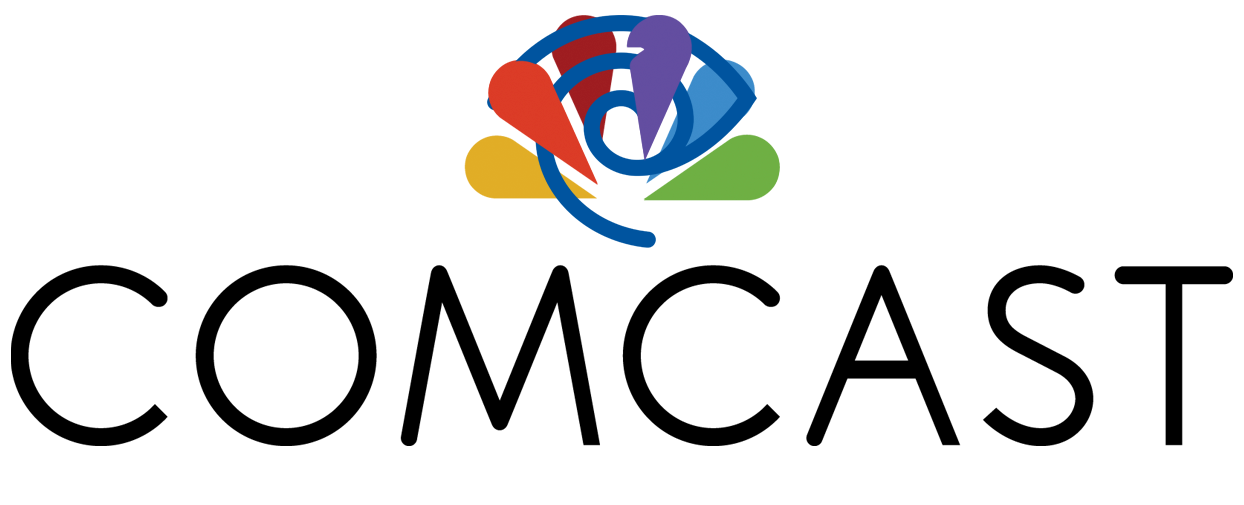
Two Big Reasons The New Broadband Standard Is Bad News For The Comcast Merger
None of the big ISPs are happy about today’s FCC vote drastically increasing the bare minimum that qualifies as “broadband.” But even though executives at Verizon, AT&T, and plenty of others are probably muttering aloud rude words in the C-suite right now, Comcast and Time Warner Cable have good reason to be more worried than most. [More]
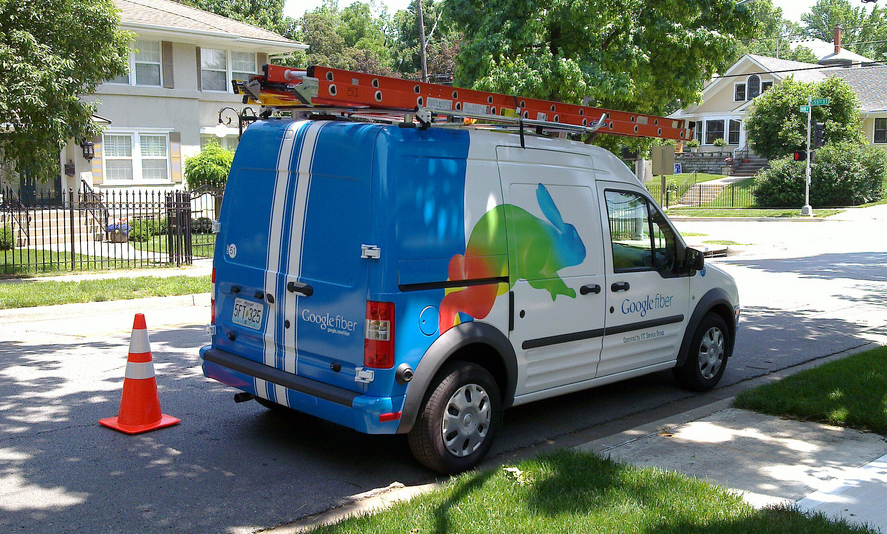
Google Says Net Neutrality Won’t Curb Expansion Of Google Fiber
Opponents of the net neutrality rules pending before the Federal Communications Commission claim that they would be an impediment to investment and slow the expansion and improvement of broadband networks around the country. But the folks at Google, who just added four new major markets for its Google Fiber service, aren’t terribly worried. [More]
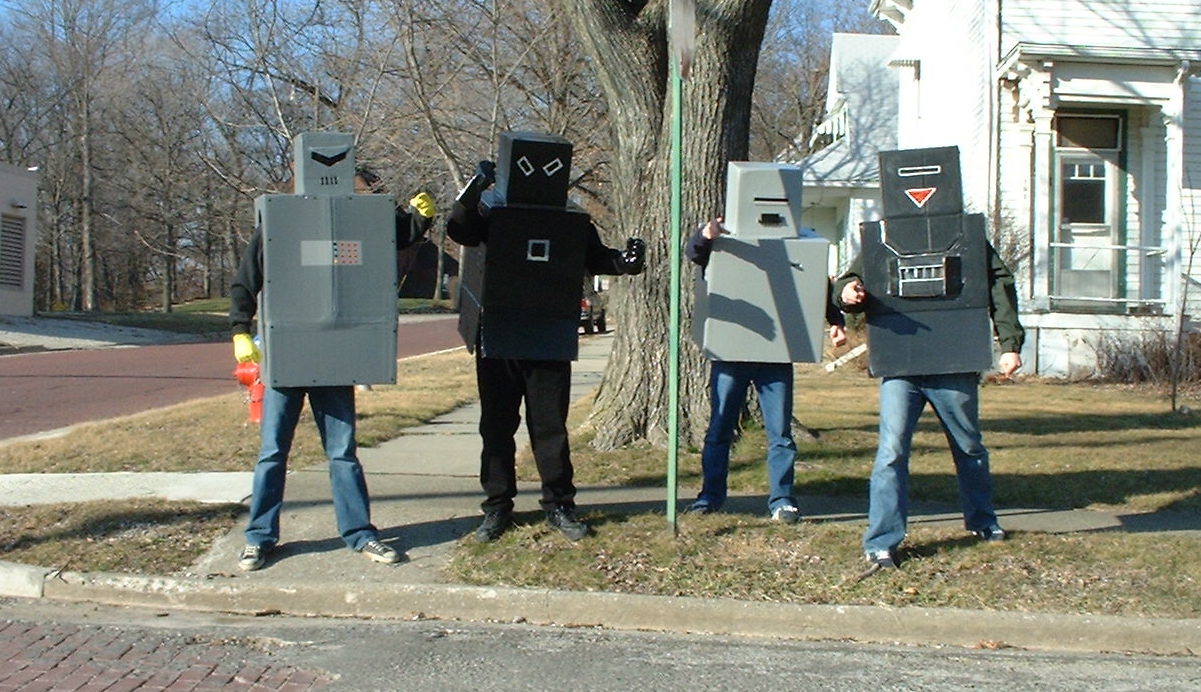
FTC: Totally Fine By Us If Phone Companies Block Robocalling Numbers
Robocalls suck. Everyone hates them. And yet despite decades of trying to deal with autodialers and phone spam, they’re still a big problem. The FCC wants to know if phone companies can block them getting to you. Phone companies say too bad, so sad, the rules mean we can’t block them… but the FTC now disagrees. [More]

Verizon Fined $2 Million For Failing To Investigate Rural Calling Problems
Verizon and other operators of copper wire landline service have been accused in recent years of letting these old networks fall into disrepair in order to shift consumers over to wireless and fiberoptic services. It certainly doesn’t help Verizon’s case when the company spends months failing to investigate problems with rural phone service that its own data showed existed. [More]


